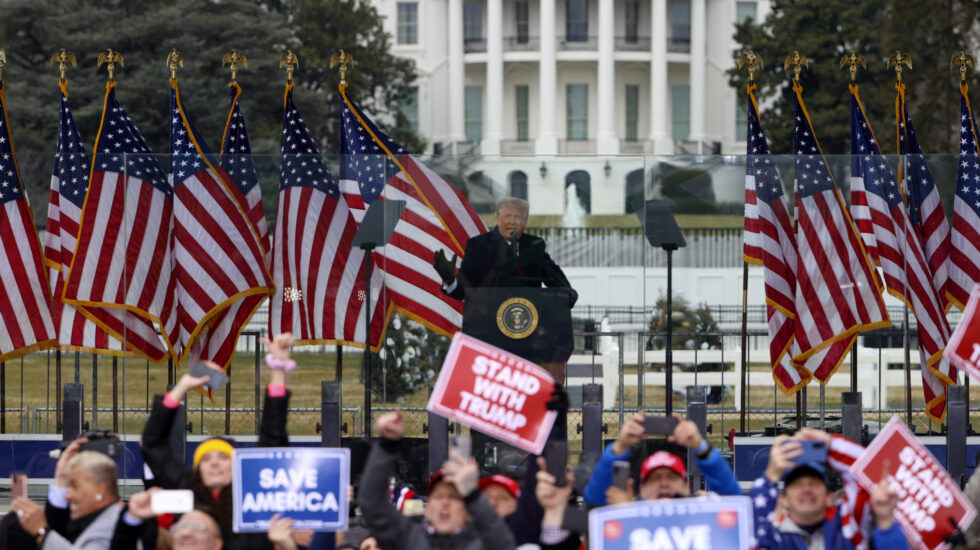A federal appeals court will begin hearing arguments on Tuesday in order to determine if former President Donald Trump can block the release of documents sought by the House committee investigating the January 6th attack on the U.S. Capitol.
Trump’s lawyers will argue that the documents in question, which include call logs, drafts of speeches, and email chains, are protected by executive privilege. But they face an uphill battle; President Joe Biden has already approved the release of the documents, and incumbents have long been considered the final arbiter of executive privilege claims. In addition, the three judges that will hear the case – Patricia A. Millett, Robert L. Wilkins and Ketanji Brown Jackson – were all appointed by Democrats.
Earlier this month, U.S. District Judge Tanya S. Chutkan ruled that the National Archives – which houses the documents – must turn them over to the January 6th committee. The Washington Post reports:
“Presidents are not kings, and Plaintiff is not President,” Chutkan wrote, ruling that an ex-president’s residual right to withhold records from Congress after leaving office does not continue in perpetuity.
Chutkan said Trump failed to identify any personal “injury to privacy, property, or otherwise” that he would suffer from production of records.
As for the presidency, Chutkan said executive privilege serves the republic — by ensuring presidents receive “full and frank advice” from advisers without fear of public embarrassment — not any individual, and that the incumbent president is best positioned to evaluate and balance the long-term interests of the executive branch.
Chutkan added that Congress has a valid legislative purpose for seeking the documents because they may want “to consider legislation to prevent [events like January 6th] from ever occurring again.” She called the attack “the first time since the election of 1860, the transfer of executive power was distinctly not peaceful.”
A panel of the U.S. Court of Appeals for the District of Columbia Circuit temporarily blocked Chutkan’s ruling and agreed to hear the case. POLITICO provides context:
If the panel agrees with Chutkan’s decision, it could deal a fatal blow to Trump’s push to maintain the secrecy of his pre-Jan. 6 maneuvers. Though he would likely appeal to the full bench of the appeals court or to the Supreme Court, a ruling against him is bound to spark an urgent race by the committee to obtain the documents and fight any efforts to stay the ruling during an appeal.
Many Trump allies have cited Trump’s claim to executive privilege as the reason they’re resisting subpoenas issued by the House committee, so a court of appeals ruling against Trump would defang their argument.
Trump insists the House committee is politically motivated and is seeking to embarrass him.
“The former president’s effort to dismiss that decision as driven by politics ignores the magnitude of the events of Jan. 6 and the overriding need for a national reckoning to ensure that nothing similar ever happens again,” Justice Department attorney Gerard Sinzdak wrote in court documents. The Justice Department is representing the National Archives.
